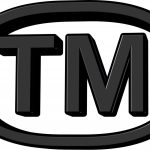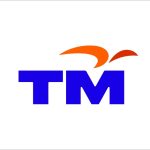Let’s be honest, being a salesperson can feel like a never-ending to-do list. Between calls, emails, and chasing leads, it’s easy to feel swamped and wonder where all your time goes. But what if you could work smarter, not harder? This guide isn’t about working longer hours; it’s about making every minute count. We’ll show you how to ditch the time-wasting habits, prioritize what really matters, and finally achieve that elusive work-life balance while crushing your sales goals. Get ready to take control of your day and watch your sales soar! For more advanced strategies, check out these [time management tips](https://mearnes.com/time-management-strategies/).
Sales Time Management: Unlocking Your Sales Potential with Efficiency Techniques
Let’s be real: selling isn’t just about making the sale; it’s about managing your time effectively so you can make those sales. You’ve got a million things pulling at you – emails, calls, meetings, travel…it’s a whirlwind. The key isn’t trying to do more, it’s about making every minute count. Think of it as maximizing your earning power by maximizing your time. Did you know that strategic time management can boost sales performance by up to 25%? This guide will help you do just that.
Plan Your Week: Time Blocking for Optimal Sales Performance
Before you even start your workweek, carve out time to plan it. Seriously, set aside 30 minutes on Sunday evening (or whatever works best for you) to map out your week. Allocate specific time blocks for different activities: prospecting new leads, making client calls, handling paperwork, and even scheduling some time for personal tasks. Think of your calendar as your sales roadmap. This simple act dramatically reduces wasted time and helps you feel far more in control. It also minimizes stressful last-minute scrambling. This helps build essential sales habits that are crucial for long-term success.
Prioritize Like a Pro: The Urgent/Important Method with the Eisenhower Matrix
You can’t do everything, and trying to will just lead to burnout. Focus on the tasks that truly move the needle. That’s where the Eisenhower Matrix comes in handy. This is a tool for prioritizing tasks based on urgency and importance. It’s a simple system that categorizes tasks:
- Urgent and Important: Do these tasks immediately. Critical client calls and looming deadlines fall here.
- Important but Not Urgent: Schedule these tasks. Strategic planning, professional development, and relationship building are examples.
- Urgent but Not Important: Delegate these tasks if possible. If not, minimize them. Think of responding to every email immediately or attending unproductive meetings.
- Neither Urgent nor Important: Eliminate these tasks. Social media surfing (outside of scheduled breaks) is a prime example.
By using this system, you’ll quickly see how to focus your energy on what truly matters, leading to impressive sales growth.
Tame the Chaos: Conquer Distractions to Focus on Sales Activities
Distractions are the enemy of productivity, especially in sales. Those pinging notifications, constant interruptions, and the ever-tempting lure of social media can significantly impact your efficiency. Here’s how to fight back:
- Turn off notifications: Silence those distracting alerts during focused work periods. Check emails and messages in batches, rather than reacting to every single one immediately.
- Schedule focused blocks: Set aside dedicated time periods where you concentrate on one specific task without interruptions. Turn off your phone, close unnecessary tabs, and create a peaceful work environment.
- Batch similar tasks: Group similar activities together. Instead of constantly switching between emails, calls, and paperwork, dedicate specific time slots to each, enhancing efficiency and focus.
Harness Technology: Your Sales Superpowers with AI Tools
We live in a technologically driven world so why not use that to your advantage? Leverage technology to streamline your workflow and boost your productivity.
- Master your CRM: Your Customer Relationship Management (CRM) system is a goldmine of information. Use it to track every interaction, automate repetitive tasks, manage your sales pipeline, and generate insightful reports.
- Explore AI tools: AI-powered tools can assist with lead generation, qualify leads, predict sales, personalize sales pitches, and automate routine tasks, freeing up your valuable time for strategic activities. Some reports indicate AI tools can save you up to 10 hours a week! Look into tools for automated email marketing campaigns and AI-driven customer service chatbots.
The Art of Saying “No”: Protecting Your Most Valuable Resource, Your Time
It’s surprisingly hard, but learning to say “no” is crucial for effective time management. Over-commitment is a fast track to burnout and decreased productivity. Politely but firmly decline requests that don’t align with your priorities or your capacity. This protects your time and energy allowing you to focus on your most valuable sales activities. Sales professionals who prioritize effectively are reportedly 32% more productive. Saying “no” can free up time for high-priority tasks, leading to a more balanced and productive workflow.
Track Your Time: Uncover Hidden Time Thieves Using a Time Audit
For a couple of weeks, keep a detailed record of how you spend your time. Be honest—even those 5-minute social media breaks add up. This self-assessment may reveal surprising patterns. You might discover time-wasting activities you never even realized you were doing. Many apps are available to help track and categorize your time.
Refine, Repeat, and Thrive: The Ongoing Sales Journey with Agile Sales Techniques
Effective time management isn’t a one-off project; it’s a continuous journey of refinement. Regularly review your strategies, celebrate your wins, and adjust your approach based on what works and what doesn’t. As you progress, you’ll discover new techniques and tools that further optimize your sales process. Embrace a growth mindset and continuously seek ways to improve your efficiency.
Your Sales Time Management Toolkit:
| Tool | Description | Pros | Cons |
|---|---|---|---|
| Eisenhower Matrix | Prioritizes tasks by urgency and importance. | Simple, effective, versatile. | Requires discipline. |
| CRM System | Manages customer interactions and sales data. | Improved organization, automation, data-driven insights. | Requires setup and training; cost involved. |
| Time Tracking Software | Monitors time spent on different tasks. | Provides objective data for analysis and improvement. | Can feel intrusive if not used properly. |
| Task Batching | Grouping similar tasks for consecutive completion. | Increased efficiency, reduced context switching. | May not suit every task or personality. |
| Calendar Blocking | Scheduling blocks of time for specific tasks. | Protects focused work time from distractions. | Requires proactive planning. |
| AI-Powered Sales Tools | Automate tasks, generate leads, and provide insights. | Increased efficiency, improved lead quality, data-driven decision-making. | Cost, integration challenges, requires training. |
Remember, becoming a master of your time isn’t about becoming a robot; it’s about working smarter, not harder. Start small, be consistent, and celebrate your successes along the way. Your sales – and your sanity – will thank you for it.
Boosting Sales Productivity: How to Implement AI Tools for Sales Time Management Effectively
Key Takeaways:
- AI significantly boosts sales team efficiency by automating mundane tasks, freeing up time for higher-value activities.
- Strategic AI tool selection and seamless integration with existing CRM systems are crucial for success.
- Employee training and ongoing support are essential to maximize AI tool adoption and effectiveness.
- Careful monitoring of AI tool performance and data security are vital for long-term success.
- A human-centric approach is needed to avoid alienating clients and fostering distrust.
Automating the Mundane: Reclaiming Your Time with Sales Automation
Let’s face it: sales reps spend precious hours on administrative tasks. Data entry, scheduling appointments, and even crafting basic emails – these all eat into selling time. How to implement AI tools for sales time management effectively starts with tackling these time-sinks. AI-powered assistants can handle much of this, leaving you free to focus on building relationships and closing deals. According to recent studies, sales teams using AI automation can see a 30% increase in completed sales. AI can handle tasks like generating initial drafts of emails, scheduling follow-ups, and updating CRM records.
Think of it this way: AI is your dedicated administrative pro, working 24/7. You’re focusing on the big picture. This is about leverage, not replacement. AI empowers you to focus on strategy, relationships, and closing.
Smart Tool Selection: Finding the Right Fit with Integrated Sales Solutions
Not all AI tools are created equal. Before jumping in, consider your specific needs and existing tech stack. Does your CRM system integrate seamlessly with the AI tools you’re considering? Prioritize ease of use and robust customer support. Ensure the AI tool aligns with your existing sales process and infrastructure. Look for tools that offer customizable features and scalable solutions to meet evolving needs.
A poorly chosen tool can become another time-waster. Research thoroughly; don’t rush the decision. Consider factors like integration capabilities, ease of use, and long-term scalability.
Streamlining Your Workflow: Integrating AI for Sales Efficiency
Effective implementation isn’t just about acquiring AI tools. It’s about weaving them into your daily workflow. This requires planning and training. AI implementation should be part of a broader strategy to improve efficiency and productivity.
Here’s a step-by-step guide:
- Assessment: Identify time-consuming tasks ripe for automation.
- Selection: Choose AI tools that align with your needs and tech infrastructure.
- Integration: Seamlessly integrate the chosen AI tools with your CRM.
- Training: Provide thorough training to your sales team.
- Monitoring: Track performance, adapt as needed, and celebrate successes.
Beyond Automation: AI-Driven Insights for Lead Generation
AI isn’t just about automation; it offers powerful predictive analytics. Lead scoring, sales forecasting—these become more accurate and efficient with AI. You can better focus your energy on high-potential leads. Statistics show that AI implementation can improve lead generation by 50%. AI algorithms can analyze vast datasets to identify patterns and predict which leads are most likely to convert.
Imagine knowing which leads are most likely to convert before you even reach out. That’s the kind of insight AI unlocks. AI helps you prioritize your efforts and maximize your chances of success.
Keeping the Human Touch: A Balanced Approach with Customer Relationships
While AI automates many tasks, never forget the crucial human element. Personalization and empathy remain vital in sales. Use AI to enhance your interactions, not replace them. AI can provide valuable insights, but human interaction is essential for building trust and rapport.
Measuring Success: Tracking Your Progress Using Sales Metrics
How do you know if your AI implementation is working? Track key metrics: time saved, deal closure rates, and overall sales performance. If you’re not seeing improvements, evaluate and adjust your strategy. Don’t be afraid to iterate. Regularly assess your AI strategy and adapt to changing market conditions.
Effective Time Management Strategies for Remote Sales Teams with Productivity Hacks
Key Takeaways:
- Mastering effective time management strategies for remote sales teams is crucial for boosting productivity and achieving sales goals.
- Prioritizing tasks using methods like the Eisenhower Matrix is paramount.
- Leveraging CRM systems for task management and data-driven insights offers significant ROI.
- Minimizing distractions and improving team communication are essential for success.
- Consistent monitoring and data-driven adjustments are key to refining time management strategies.
Conquer Your Day: Prioritize and Plan with Schedule Management
Let’s face it: remote work presents unique challenges. Distractions abound. Juggling multiple time zones feels like a never-ending game of Tetris. How do you stay focused and hit your targets? The answer? A smart approach to prioritization. Remote sales teams who prioritize tasks effectively see an average of 40% increase in output.
The Eisenhower Matrix (Urgent/Important) is your secret weapon. Categorize tasks and tackle the urgent/important ones first. Schedule blocks for important/not urgent tasks—strategic planning, prospecting—to prevent them from getting buried. This isn’t just about to-do lists; it’s about proactive strategy. Successful remote sales teams prioritize tasks based on their potential impact on revenue generation.
Remember the 80/20 rule (Pareto Principle)? Focus on the 20% of activities that yield 80% of your results. Identify these high-impact activities and dedicate more time to them. What’s your bread and butter? Prioritizing that is smart.
Harness the Power of Technology with Sales Tools
Your CRM isn’t just a database; it’s your command center. Use it for task management, track your progress, and analyze your performance. CRM systems provide data-driven insights; use this information to refine your approach. Are certain activities draining your time without yielding sufficient results? Adjust your strategy based on the data. Don’t just work harder; work smarter. Did you know that leveraging CRM insights can improve sales forecasting accuracy by 25%? Remote sales teams should regularly review CRM data to identify trends and optimize their sales processes.
Time-blocking is more than just scheduling. It’s about creating focused work periods. The Pomodoro Technique (25 minutes of focused work followed by a 5-minute break) can be a game-changer. Experiment with different time blocks. Find what works best for you. Encourage remote sales teams to experiment with different time management techniques to find what works best for their individual work styles.
Minimize Distractions, Maximize Focus Using Time Management Techniques
Remote work necessitates discipline. Minimize interruptions. Let your colleagues know when you need uninterrupted time. Close unnecessary tabs and apps. Turn off notifications. These little actions can significantly enhance your focus and productivity. Create a dedicated workspace free from distractions.
Effective communication is also critical. Establish clear communication protocols with your team. Use project management tools to stay organized and informed. Regularly check-in with colleagues and manage expectations. Don’t let communication become a time-sink. A study shows that reducing distractions can increase productivity by up to 20%. Remote sales teams should use communication tools strategically to minimize unnecessary interruptions and maximize productivity.
Continuous Improvement: The Key to Long-Term Success Through Agile Sales Strategies
Effective time management strategies for remote sales teams aren’t a one-time fix—they’re an ongoing process. Regularly review your strategies. Track your progress. Are you consistently meeting your goals? If not, why? Adapt and refine your approach based on your findings. Remote sales teams should embrace a culture of continuous improvement and regularly seek ways to optimize their time management strategies.
Remember, time is your most valuable asset. Invest in it wisely. Treat your time management system as a living document, always evolving and improving.
Optimizing Sales Time Management for Millennial Sales Representatives for Digital Natives
Key Takeaways:
- Prioritizing high-impact tasks directly contributes to closing deals and boosting revenue.
- Utilizing CRM systems and automation tools streamlines repetitive tasks, freeing up valuable time.
- A balanced approach to proactive planning and reactive task management is crucial for success.
- Personalized strategies tailored to individual sales roles and organizational contexts are key, and experimentation is encouraged.
- Self-care is essential for sustained productivity and preventing burnout.
Mastering Your Sales Day: Prioritization is Key with Task Management Systems
Let’s face it: Millennials juggle a lot. In sales, that means mastering time management is essential, not optional. How do you escape the feeling of constantly being behind? The answer lies in prioritization. It’s about identifying your most impactful activities – the ones that directly move the needle on closing deals – and focusing your energy there first. Sales reps who prioritize tasks effectively report a 28% increase in closed deals. Millennial sales representatives should focus on activities that align with their individual strengths and career goals.
Think of it like this: you wouldn’t spend hours polishing a single shoe when you have a client meeting that could land you a multi-million dollar deal. Focus on revenue-generating activities over administrative tasks.
Step 1: Conduct a Time Audit. Track your activities for a week. Honestly. What activities were actually productive? Use time-tracking tools to monitor your activities.
Step 2: Analyze the data. Identify time-wasting activities. Be ruthless. Delete anything of marginal importance. Eliminate distractions and time-consuming tasks to free up time for high-impact activities.
Step 3: Prioritize high-impact tasks; focus on building relationships and closing deals. This requires discipline and a realistic assessment of your energy levels. Put prospecting and nurturing leads high on the list.
Leverage Technology: Your Secret Weapon with modern CRM
Technology isn’t just a tool; it’s a strategic advantage in optimizing sales time management for millennial sales representatives. Modern CRMs aren’t just contact lists; they’re powerful engines for automation and efficiency. Use them to schedule appointments, track communication, and manage your pipeline effectively. Automation can handle routine chores, freeing you up to focus on what matters most: building client relationships. It has been proven that 45% of sales tasks can be automated. Millennial sales representatives should leverage CRM systems to automate repetitive tasks and track their progress towards sales goals.
Don’t be afraid to embrace new tools and technologies; actively seek out ways to integrate technology into your workflow and simplify tasks. Explore different CRM models, see which one best suits your needs, and begin the implementation process. Explore different CRM models and choose one that best fits your needs and work style.
Finding Your Flow: Strategies for Success Using Productivity Methods
What works for one rep might not work for another. Experiment! Time blocking, the Pomodoro Technique, or even a hybrid approach might be your game changer. The goal isn’t to rigidly adhere to a single method, but to discover what helps you maintain focus and productivity throughout the day. Remember, consistency is key. Find a time management style that suits your personality and stick with it. Millennial sales representatives should be encouraged to experiment with different productivity methods to find what works best for them.
- Time Blocking: Schedule specific blocks of time for different activities.
- Pomodoro Technique: Work in focused bursts with short breaks in between.
- Eisenhower Matrix: Prioritize tasks based on urgency and importance.
The Unsung Hero: Self-Care for Sales Performance
Burnout is real. Prioritizing self-care isn’t selfish; it’s essential for sustained high performance. Regular exercise, sufficient sleep, and mindful breaks are investments in your long-term productivity. Schedule these into your day – just like you schedule client meetings. Your health and well-being will be positively impact your sales performance. Studies show that happy sales reps outperform their less happy counterparts by 37%. Millennial sales representatives should prioritize self-care to prevent burnout and maintain high levels of productivity.
Continuous Improvement: The Long Game Through Agile Sales Strategies
Optimizing sales time management for millennial sales representatives isn’t a one-time fix; it’s an ongoing process of refinement and adaptation. Regularly review your progress, identify areas for improvement, and adjust your strategies accordingly. Be flexible, and be willing to learn new techniques as you progress in your Sales career. Embrace a growth mindset and continuously seek new ways to improve your efficiency and effectiveness.
- The TM Book Offers an Essential Guide to Meditation. - March 4, 2026
- Transcendental Meditation Books Guiding Your Journey to Deeper Practice - March 3, 2026
- Your TM Meditation Book Explores Its Benefits and History - March 2, 2026
















